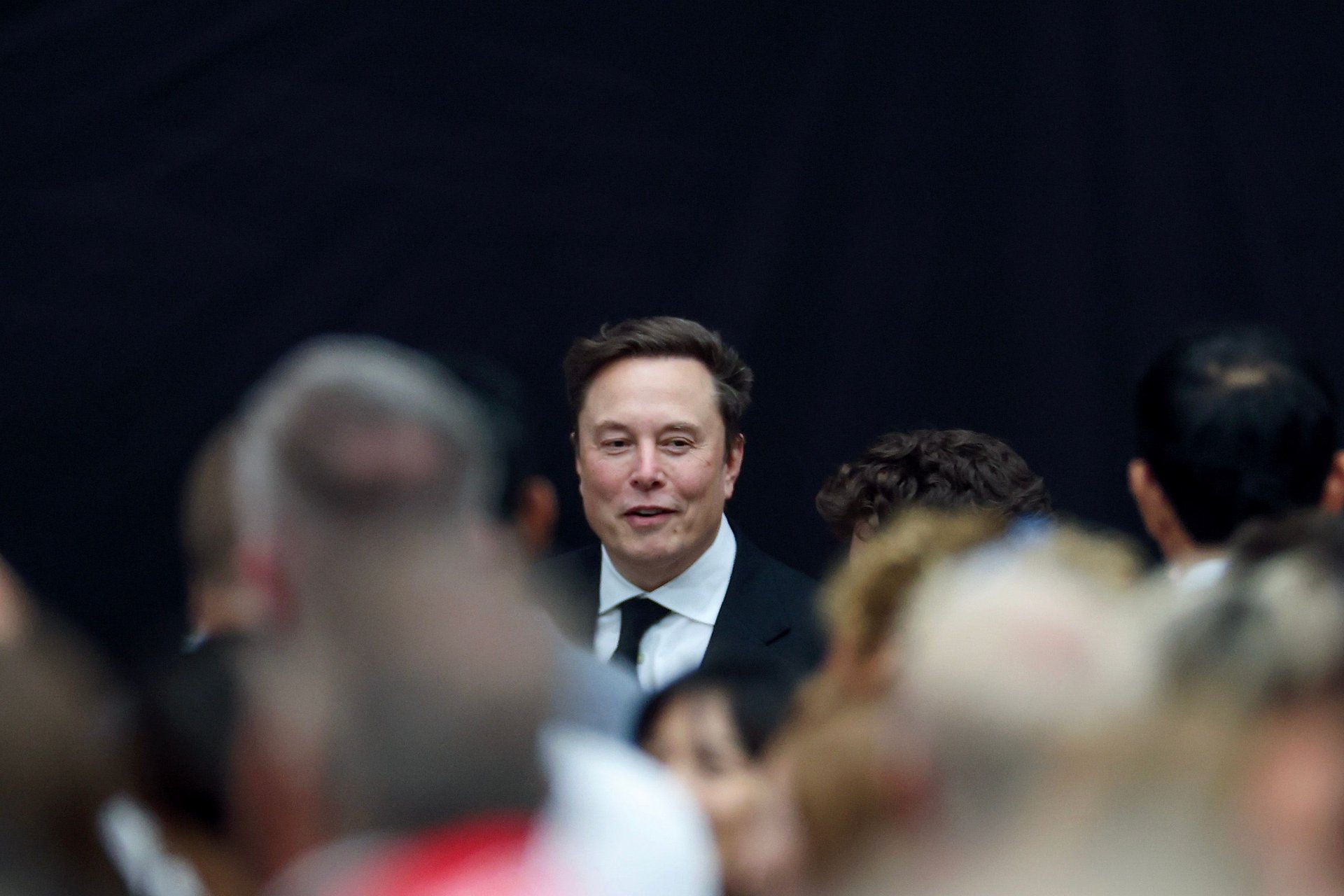Elon Musk slams ‘corporate terrorists’ for opposing his $1 trillion Tesla pay package
Musk’s attack on proxy firms added drama to a Nov. 6 shareholder vote that won't just decide his pay, but how much control he keeps over Tesla’s future

Joe Raedle/Getty Images
As Elon Musk is busy building “robot armies,” he has found a new enemy in human form. On Tesla’s latest earnings call, the CEO called proxy-advisory firms ISS and Glass Lewis “corporate terrorists” for opposing his proposed $1 trillion pay plan.
Suggested Reading
The comments, which came in the call’s final minutes, were a pointed escalation ahead of Tesla’s Nov. 6 shareholder vote — one that could decide both Musk’s compensation and his control of the company. The proxy-advisory firms have urged investors to reject the package, warning that it concentrates too much power in one person’s hands and offers too little accountability in return.
Related Content
Musk sees it differently. He told investors that the issue isn’t money but authority — the voting leverage he believes is necessary to execute Tesla’s next chapter in robotics and AI. He argued for “mid-20s%” voting power, enough to drive long-term decisions but not so much that he couldn’t be ousted if he “goes insane.” Without that control, he’s reluctant to keep “building a robot army” that could outlast his tenure at the company.
The proposed stock-based award would roughly double his ownership stake from around 13% to nearly 29% if Tesla hits some almost absurd performance milestones: an $8.5 trillion market cap, one million robotaxis, and one million humanoid robots in service. Supporters see those hurdles as proof that the plan pays only for world-changing success. Critics say the scale alone distorts the meaning of incentive pay.
It’s hard to ignore the Delaware echo. Earlier this year, the state’s Chancery Court struck down Musk’s 2018 $55 billion pay plan, calling it “unfathomable” and boardroom overreach. To some investors, Musk’s push for the $1 trillion award has a whiff of sour grapes — and unfinished business.
Both sides are campaigning hard. ISS and Glass Lewis have issued “vote no” recommendations to institutional clients, citing dilution risks and the lack of traditional guardrails. Tesla’s board, meanwhile, has promoted a “Vote Tesla” site arguing that keeping Musk committed is in shareholders’ best interest.
The coming vote can be seen as a referendum on Musk’s power — and on whether investors believe Tesla’s future depends on keeping him unchallenged at the helm. In the era of AI, robotaxis, and humanoids, Musk isn’t just asking for (a big) reward but for control. Whether investors buy that argument — or balk at the price he’s willing to pay himself — could shape Tesla’s identity for years to come.
